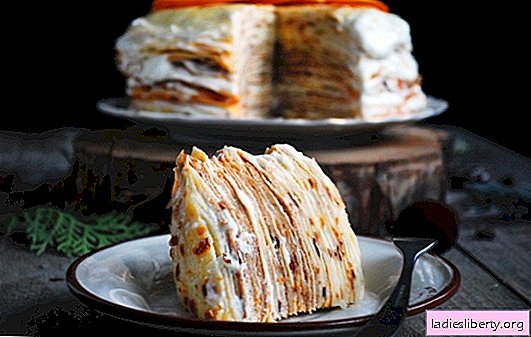
Pregnancy makes a woman special. The organism, its needs, food preferences are changing. Compliance with certain rules of nutrition during pregnancy will help you feel good throughout the term and make a healthy baby.
Pregnancy Nutrition
Learning about pregnancy, a woman can make two mistakes: either reduce the amount of food so as not to get fat, or, conversely, eat for two to give the baby more nutrients. Both are wrong because it leads to stress, anemia, or a dangerous set of excess weight.
During the period of bearing a child, you must adhere to the following rules in nutrition:
• make the diet balanced in the content of proteins, fats and carbohydrates in order to provide the mother with energy and constantly have a supply of substances necessary for the development of the fetus;
• avoid overeating, especially severe in the 2-3 trimester, and irregular eating. To do this, immediately switch to a fractional five- or six-time meal;
• abandon unhealthy and unhealthy foods by switching to proper nutrition;
• Do not eat pickled and salted, smoked and fried foods that overload the kidneys and liver. Spicy foods are prohibited if there is an ulcer, cystitis, anemia;
• forget about frying, prepare food by boiling, stewing or baking;
• Be sure to eat hot food during the day, prepare light first courses;
• Include fish in your diet regularly, but without fanaticism. Yes, it is very useful, but 150 grams three times a week will be enough to bear a healthy child and remain slim and beautiful;
• Vegetable fiber should be included in the diet, and you can eat raw, heat-treated vegetables and fruits.
Proper nutrition during pregnancy should bring joy. In general, everything should please in this magical time. Calm mother is a calm baby. Therefore, you do not need to choke on cottage cheese if you do not like it, or force yourself to drink carrot juice, which you hate since childhood. Choose foods that are equivalent in nutritional value and composition. For example, instead of cottage cheese, eat young cheese or drink kefir.
Nutrition in the first trimester of pregnancy
At the beginning of pregnancy, changes in the body are not as obvious as in the middle or end of gestation. Therefore, special changes, in addition to the rejection of junk food, do not occur in nutrition. Another question is that at this stage the perception of tastes and smells can change, toxicosis with vomiting and nausea can begin.
To alleviate the condition, you need to eat a little after two to three hours, without mixing different dishes in one meal. Relieves vomiting weak broth of wild rose, which can be drunk with homemade crackers or savory biscuit cookies. Food should be warm, light. Boiled and baked dishes from vegetables and fruits are well tolerated.
The basis of the diet in the first trimester should be products in which there is a lot of folic acid (vit. B9) and in general vitamins of group B. They not only alleviate toxicosis, but also help the formation of a healthy body of the unborn baby, especially its nervous system. What can be included in the diet:
• carrots, beets, cabbage;
• soya beans;
• spinach;
• beans, peas;
• tomatoes;
• caviar;
• cheeses;
• kidneys, liver;
• eggs;
• cottage cheese.
Lack of proper nutrition in the early stages of pregnancy and a lack of folic acid can trigger a miscarriage.
Nutrition in the second trimester of pregnancy
In the middle of pregnancy, the fetus is actively growing, its internal organs begin to work. A woman needs more energy to feel good and provide her baby with normal development. The daily diet should have protein meals (at least 80 g per day), and the total calorie content of food eaten during the day should vary between 2200 - 2500 kcal.
The mother's body especially needs calcium and calciferol, or vitamin D. The lack of these substances will lead to thinning of tooth enamel, the appearance of caries, the development of osteoporosis, and the incorrect formation of the skeleton in the fetus. To provide the body with the norm of these substances, you need to do this:
1. Be sure to eat dairy and sour-milk products, butter, oatmeal, tuna liver, cod, lean on yolks, raisins, green onions and spinach;
2. remove from the diet products of white flour of the highest grade, sweets, soda, cocoa, semolina, spicy and oily. All this slows down the absorption of calcium and vitamin D.
In the second trimester, anemia can develop, so you need iron-rich foods: red meat, bell pepper, radishes, liver, eggs, oatmeal and buckwheat, as well as berries and fruits that contain a lot of vitamin C (blackcurrant, cranberries, apples, rose hips) . Ascorbic acid helps the body absorb iron better.
To avoid constipation, the intestines need to be loaded with fiber, to stimulate its peristalsis. Therefore, two-thirds of the daily diet should be food of plant origin. Stew vegetables, bake apples, cook fruit and vegetable salads.
If heartburn occurs, do not eat anything salty or spicy. Cook steam cakes, vegetable purees, honey, seaweed salad, drink alkaline mineral water. It helps.
Nutrition in the third trimester of pregnancy
The last period before the birth of the child is special. The body of the fetus is formed, but every day the weight of the unborn baby increases. It is physically difficult for mom to walk, in the later stages - to sleep and sit. Nutrition during pregnancy during this period is aimed at relieving digestion and preventing swelling.
At week 33, you need to reduce the calorie intake due to fats and simple carbohydrates. You need to eat boiled fish, steam vegetables, dairy products, light vegetable soups.
Some sources recommend spending regular fasting days every 3-4 days, there is only cottage cheese, apples and a little kefir. However, this unloading makes no sense. Just do not overeat, do not eat harmful, heavy, spicy food, so that the intestines work like clockwork and the stomach does not overflow.
In the later stages, it is important to follow a hypoallergenic diet, to abandon potentially dangerous products that can cause allergies in mothers and provoke their appearance in a child. Undesirable:
• Strawberry;
• honey;
• chocolate;
• mushrooms;
• a fish;
• nuts.
At this point, a woman may have an irresistible desire to eat something harmful: chocolate bars, a serving of fried potatoes and cola and a burger. This is normal. It is important that such a desire does not turn into a caloric frenzy. Allow yourself a piece of unhealthy food, but only once.
In order not to feel cravings for carbohydrates, eat natural thick or drinking yogurt. It contains substances that remove carbohydrate hunger. Drink some yogurt, eat a baked apple and a slice of cheese - you get a light, tasty snack or dinner.
When planning a nutrition plan during pregnancy, consider the features of each trimester. At the end of pregnancy, do not drink plenty of fluids to prevent swelling. To facilitate the work of the intestines, try to use the principles of separate nutrition, for example, eat steam cutlets with vegetables, and cottage cheese with herbs or fruits.











